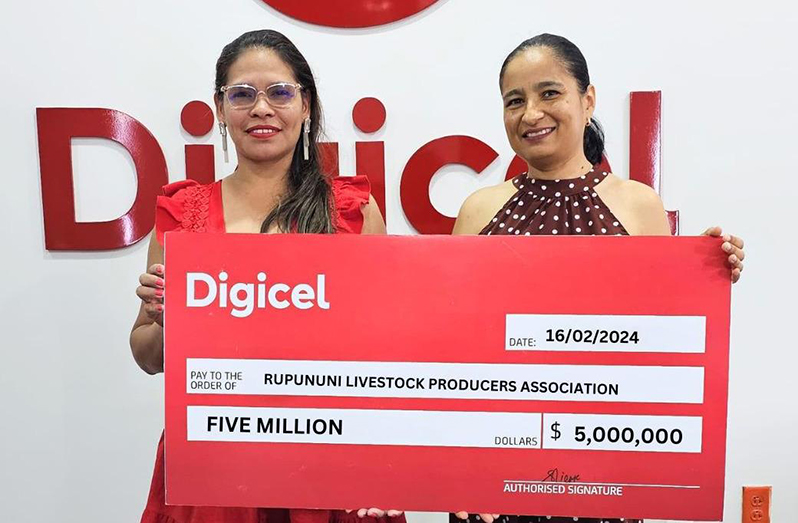Lethem to come alive on Easter Weekend
WITH improved planning and organisation to make for a nice, easy and smoother flow of the various activities billed for Rodeo 2024, Central Lethem will come alive this Easter weekend – March 29-31 – with the approximately 10,000 visitors who usually show up for the event which probably causes the most excitement in this part of the country.
Since last year, hotel rooms and other accommodation spots have been booked with persons willing to stay in neighbouring Bon Fin and even a two-hour drive further in Boa Vista, Brazil. Thankfully, this time around, the Takutu Bridge between Guyana and Brazil will remain open on a 24-hour basis to facilitate this.

Several sub-committees have been formed with support teams to ensure that every single aspect of the event is well cared for, and the mostly volunteers who put in the work are doing a great job so far, Rodeo Coordinator, Rayson O’Connell, told Pepperpot Magazine.
“We get together once a week, every Friday, to go over the execution of various aspects of the rodeo. This process starts in November and we start to meet physically in January,” Rayson shared.

Although having full-time jobs, those on the committees have been around the rodeo since they were children; they’ve grown up with it and they know what it means to be part of it, hence their willingness to go the extra mile in working to make it a success.
Even as the rodeo is generally about riding animals (bull riding, bareback bronc and saddle bronc), there are also other activities like calf roping, wild cow milking, the barrel race, horse racing, watermelon eating competition, dirt bike racing, tug of war, dance off on country music, a rodeo pageant, and prizes for best-dressed adults and children.

Rodeo has always been a big deal for folks in the Region Nine communities ever since it got started in the early 1960s when ranchers would get together to do a big roundup once a year, assisting each other in identifying, branding and separating their personal herds from other ranch herds.
It was from this system of ‘self-help,’ starting south of the Kanukus towards the central and northern ranches and ending in a final big roundup at Pirara that a friendly competition was born. Not too long after, as the ‘60s progressed, the rodeo became an organised event and moved to Stock Farm in St. Ignatius, Lethem.
Conservation International and the mayor’s office have always supported the event, and this year, it is being sponsored by Digicel. Preparation and decoration of the ground to feature a facelift, is underway, and the kids’ fun park will be installed soon.
The rodeo pageant will be on Friday night from 19:00hrs and delegates will be showcasing their horse riding, bull whip cracking and lassoing skills.
“I found out that there are two crowds that come to the rodeo: persons interested in the rodeo events and those who like to be in the party zone as observers,” Rayson shared, so arrangements have been made to facilitate both groups adequately.
In the interest of efficiency and better time management, the organisers have decided that this year, the presentation of prizes will be done right after each event instead of doing them all at once at night. This cuts out the long prize-giving ceremony at the end of the day.

Meanwhile, riders and cowboys from Saddle Mountain and other remote locations in the Rupununi will begin leaving their homes a few days before the event with their animals, sleeping and resting at various spots along the way as they journey to Central Lethem for the rodeo.
In the early days when it started, the rodeo remained at Stock Farm until the Rupununi Development Company (RDC) gave the Rupununi Livestock Producers Association (RLPA) land in Tabatinga. Here, organisers began to set up basic infrastructure. Even as the event was held without any sponsorship, the need for a more organised and structured rodeo became apparent as the number of persons attending grew.
Today, the much-anticipated and well-loved event, having garnered national attention and support, is being organised by the Rodeo Committee, which is a sub-committee of the Rupununi Livestock Producers Association (RLPA).
Over the years, the event has gained popularity, with neighbouring Brazilian ranchers and cowboys joining in.











